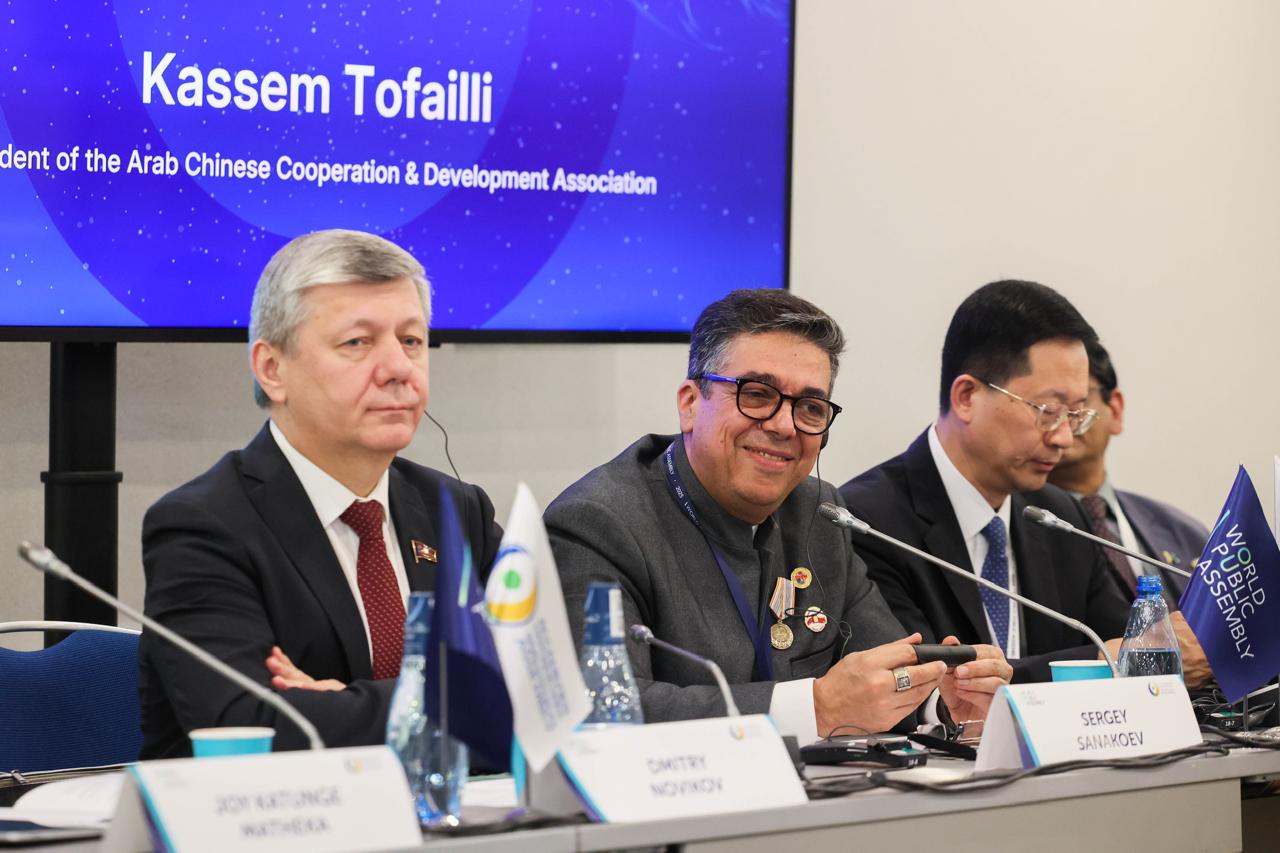From Concept to Reality: Building a "Community of Shared Future" Discussed at the WPA

Moscow, September 2025
One of the landmark panel sessions of the First World Public Assembly (WPA) focused on the concept of a “Community of Shared Future”, a vision that seeks to reshape global interaction through multipolar cooperation, cultural dialogue, and a rejection of domination by any single civilization.
“Everything we face today reminds us that interdependence is no longer a choice, but a reality,” said Muhammad Asif Noor, Executive Director of the Institute for Peace and Diplomatic Studies and Secretary General of the Pakistan–SCO Friendship Forum. He stressed that pandemics, climate change, economic shocks, and conflicts prove that no nation can stand alone.
Session moderator Sergey Sanakoev, Deputy Chairman of the Russia–China Friendship Association, reminded participants that Chinese President Xi Jinping first introduced the idea at MGIMO in 2013. Since then, the SCO, BRICS, and other countries of the Global South and East have embraced it as part of a multipolar vision.
“We are all residents of the same ‘village’ called Earth. Our task is to figure out how to build a world without domination of one civilization over others,” Sanakoev said.
Experts stressed the importance of protecting the historical truth of World War II and countering attempts at falsification. Dmitry Novikov, Deputy Chairman of the State Duma Committee on International Affairs, warned that “the threat of world war and fascism grows out of today’s socio-economic crisis.”
Participants cited the International Anti-Fascist Forum in Beijing and similar initiatives in Minsk and Moscow as vital for preserving historical memory.
Speakers pointed to BRICS as an example of diverse civilizations working together.
“Russia, India, China, Brazil, and South Africa are fundamentally different civilizations. Yet this does not prevent cooperation—perhaps it even helps,” noted one expert.
The panel highlighted culture as a unifying force. Participants argued that peaceful coexistence and cultural exchange are essential for building a multipolar world based on justice.
“If we look for the creative principle in every culture and civilization, we increasingly feel ourselves to be part of a single humanity,” one speaker concluded.
Dr. Muhammad Asif Noor urged that the WPA should lead to real mechanisms for youth leadership, interfaith trust, and peace-building. “For too long, global discourse has been defined by a narrow circle of states. This forum can make a difference by enhancing the perspectives of the Global Majority,” he said.
In conclusion, participants emphasized that the WPA must become more than symbolic: it should mark a turning point in building a multipolar worldview.
“The New World Order should be based on mutual respect and historical truth,” the panelists declared.
